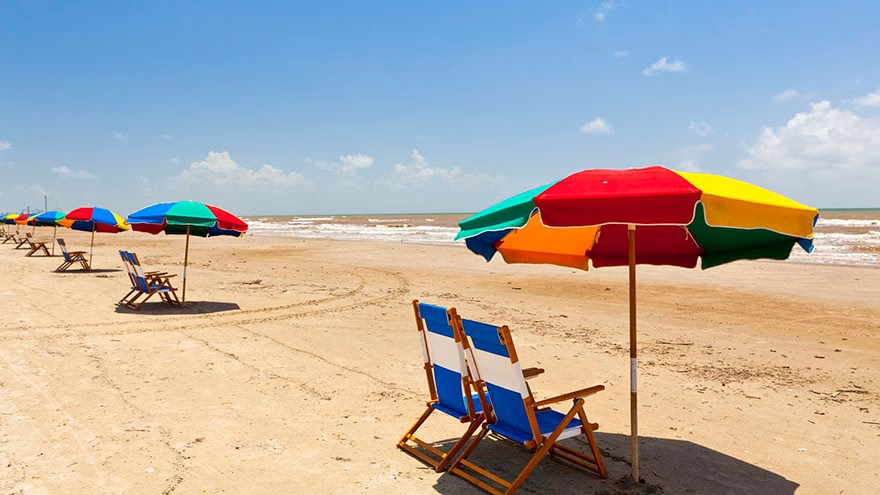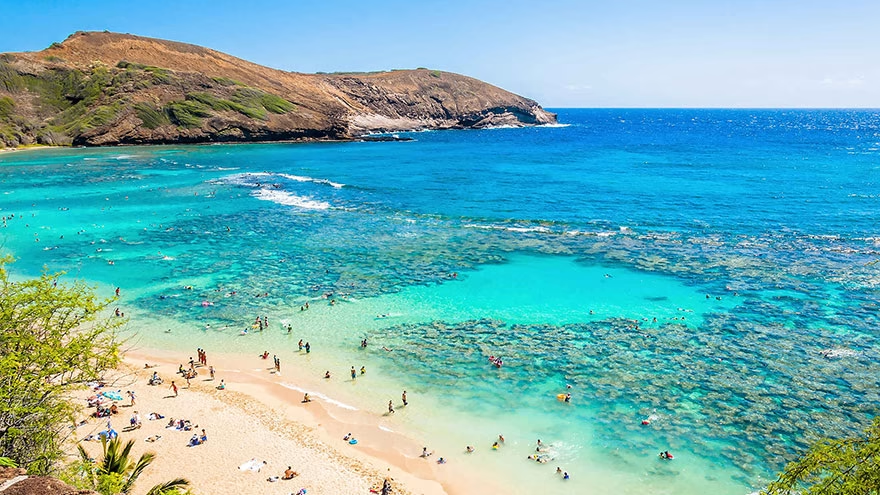While the average annual temperature along the Gulf Coast averages 70 to 72 degrees, the temperature is greatly affected by the weather, with winter temperatures cooling off significantly from the warm waters lapping at your toes in summer.

Make A Run For The Border
Head to Corpus Christi on the southern Texas coast to find beaches with the warmest water temperatures year round. Rockport Beach 30 miles north of the city averages 74 degree water year-round, with water reaching 90 degrees in the hottest part of summer and remaining just below 60 on the chilliest winter days.The beach is Texas' first blue wave beach, and monitors water quality daily for public safety. Port Aransas lies on a barrier island just offshore, with average water temperature within a degree or two of Rockport. Corpus Christi Beach, South Padre Island and Port Mansfield provide slightly cooler temperatures at an annual average of 72 to 73 degrees.
Along The Central Coast
Enjoy waters in the mid-80s during the months of July and August in the Galveston area. While the Gulf remains warm in the southern part of the state through the end of November, you'll find waters in the Galveston area dipping into the mid to low 70s by October.Experience the warmest waters along the Bolivar Peninsula, which has 27 miles of sand beach kissed by gentle surf suitable for even small children to play in. The annual water temperature averages a full degree warmer than the beaches in Trinity Bay or along the Galveston coastline.
RELATED :: List of State Parks in Texas
Chillin' Out
If a little polar bear blood runs through your veins, take a dip in the cool waters at Sea Rim State Park in Sabine Pass. The water rarely exceeds the low 70s even during the warmest months and dips down below 40 degrees in colder months.The park is found along the Greater Texas Coastal Birding Trail and is home to otters, alligators and a wide range of sea life, so even if you don't want to do more than dip your toes in the chilly water, there's plenty to see.
Proceed With Caution
Both warm and cold waters along the Texas coastline bring unique dangers. Waters below 60 degrees can cause loss of dexterity and impaired thinking within 15 minutes, so use caution when venturing into the Gulf waters during winter.Children and the elderly are more readily affected by the cold temperatures. When waters warm to the 70s, the bacteria Vibrio vulnificus can enter the body through open wounds or swallowed sea water. Vibrio causes fever, vomiting and diarrhea, but can have fatal consequences for those with liver disease or immune deficiencies, according to the Centers for Disease Control.
You Might Also Like :: Jeep Trails in Texas
Save for later
Found this helpful?
Pin this article to your Pinterest board and come back to it whenever you need a reminder.
Save to Pinterest


